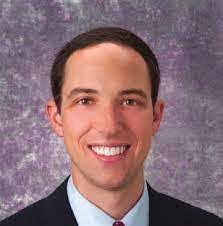Introduction
The life of a medical doctor is a dynamic blend of responsibilities, challenges, and opportunities. However, finding a harmonious balance between a demanding medical career and personal well-being is essential for long-term success and happiness. Dr Michael Hilton, a seasoned medical professional, underscores the significance of adopting strategic approaches to achieve work-life equilibrium.
Embrace Efficiency in Practice
Efficiency lies at the heart of maintaining a healthy work-life balance for medical doctors. Focusing on tasks that align with your expertise and delegating others to capable team members can streamline your practice. This approach not only optimizes patient care but also prevents the accumulation of excessive responsibilities that can lead to burnout. By optimizing your time and energy allocation, you create room for both professional growth and personal well-being.
Acknowledge Strengths and Areas for Improvement
Balancing the demands of a medical career necessitates a comprehensive understanding of your strengths and areas that require development. Acknowledge that medicine is just one facet of your life, and assess how other aspects, such as family, hobbies, and self-care, contribute to your well-being. Recognizing your limitations allows you to allocate your resources wisely, focus on what truly matters, and cultivate personal growth beyond your medical identity.
Prioritize Self-Care
Amid the rigors of medical practice, carving out time for self-care is not a luxury but a necessity. Engage in activities that replenish your energy and revitalize your spirit. Whether it’s pursuing hobbies, exercising, or spending quality time with loved ones, these moments of rejuvenation are instrumental in preventing burnout and enhancing your overall outlook. Striking a balance between work and self-care ensures that you remain physically, mentally, and emotionally resilient.
Nurture Connections and Seek Support
The journey to work-life balance is enriched by meaningful connections and a robust support network. Cultivate relationships with colleagues who understand the challenges of your profession and can provide valuable insights. Equally important are connections with family and friends, who offer emotional sustenance and a refuge from the demands of work. Engaging in open dialogues and seeking advice from your network can provide fresh perspectives on maintaining equilibrium.
Conclusion
Balancing the demands of a medical career with personal well-being is a continuous endeavor that requires thoughtful consideration and intentional action. Dr Michael Hilton insights shed light on the strategic measures medical doctors can adopt to achieve this equilibrium. By embracing efficiency, recognizing strengths and weaknesses, prioritizing self-care, and nurturing connections, medical doctors can lead fulfilling lives that encompass both professional accomplishments and personal contentment. Remember, achieving work-life balance is a dynamic journey that adapts to your evolving needs and aspirations.



